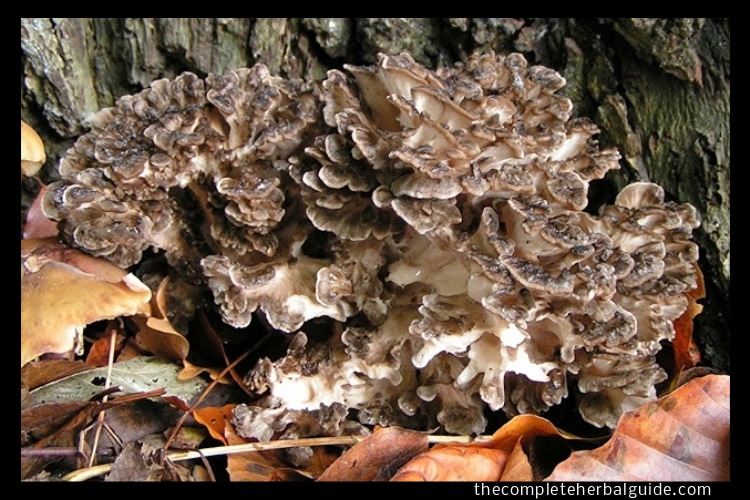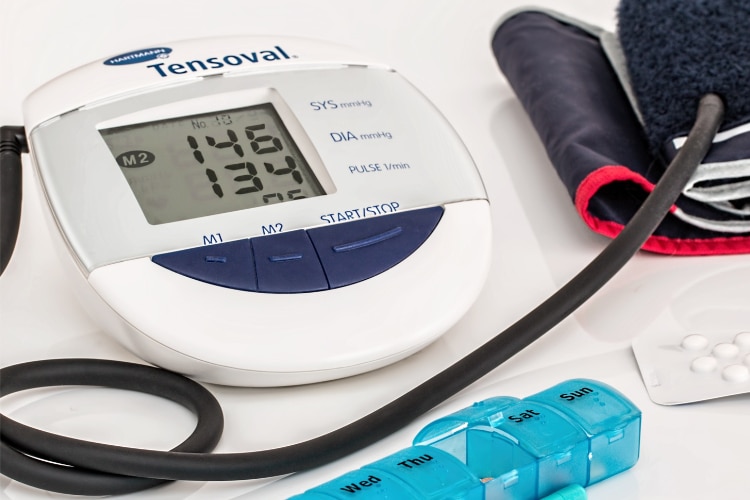
10 Foods and Herbals to Lower Blood Pressure
There are many ways to treat high blood pressure, including lifestyle changes and/or medications. If you are interested in turning to traditional treatments for lowering your blood pressure, you have many options like food or herbals.
If you are thinking of trying herbs for medical reasons, whether that means using the whole herb or a supplement, speak to your doctor first. Some herbs, especially in large quantities, may produce undesirable side effects or interfere with other medications.
Table of Contents
Basil
Basil is a delicious herb that goes well with a variety of foods. It also might help lower your blood pressure. In rodents, basil extract has been shown to lower blood pressure, although only briefly. Adding fresh basil to your diet is easy and certainly can’t hurt.

Cinnamon
According to a study conducted by the Journal of the American College of Nutrition, cinnamon actually helps reduce blood pressure in people with diabetes. (The researchers also noted that cinnamon reduces systolic blood pressure in people without diabetes, too.)
Cardamom
Cardamom powder was tested on 20 newly diagnosed individuals with primary stage 1 hypertension to discover its effect on cardiovascular risk factors. Each subject was given three grams of cardamom powder for 12 weeks. Blood pressure was taken initially, and at four-week intervals for three months. Results showed cardamom powder to significantly decrease systolic, diastolic, and mean blood pressure and significantly increase fibrinolytic (blood clot-inhibiting) activity. The total antioxidant status also increased by 90 percent at the end of three months, without any side effects.
Flaxseed
A study published in “Hypertension” concluded that flaxseed lowers blood pressure in hypertensive patients. … The former ate 30 grams of flaxseed every day for 6 months. At the conclusion of the study, those in the flaxseed group had a lower blood pressure than those in the placebo group.
Flaxseed is rich in omega-3 fatty acids, which have been found to lower blood pressure significantly. Flaxseed may protect against atherosclerotic cardiovascular disease by reducing serum cholesterol, improving glucose tolerance, and acting as an antioxidant. You can buy many products that contain flaxseed, but a better bet is to buy ground flaxseed or grind it yourself in a coffee grinder and add it to your home-cooked meals. The best part about flaxseed is that it can be stirred into virtually any dish, from soups to smoothies to baked goods. Store flaxseed in your freezer for optimum potency.
Garlic
Garlic has a wide range of well-documented effects, including helping to lower blood pressure. Studies showing a positive effect of garlic and garlic preparations are those that deliver a sufficient dosage of allicin. In double-blind studies with garlic preparations providing a daily dose of at least 10 mg allicin, blood pressure readings dropped with typical reductions of 11 mm Hg for the systolic and 5.0 in the diastolic within a 1 to 3-month period. To get enough allicin, eat 1 to 4 cloves of fresh garlic a day.
You can add fresh garlic to a number of your favorite recipes. If the flavor of garlic is just too strong for you, roast it first. And if you simply can’t eat the stuff, you can get garlic in supplement form.
Ginger
Ginger—the smart man’s aspirin—is a potent blood thinner and anti-inflammatory agent that can help you reduce your blood pressure. You can try commercial organic ginger teas, or make your own from gingerroot. Simply chop the root into small pieces and boil for about five minutes.
Hawthorn
Hawthorn is an herbal remedy for high blood pressure that has been used in traditional Chinese medicines for thousands of years. Decoctions of Hawthorn seem to have a whole host of benefits on cardiovascular health, including reduction of blood pressure, the prevention of clot formation, and an increase in blood circulation. You can take hawthorn as a pill, a liquid extract, or a tea.
Celery Seed
Celery seed is a herb used to flavor soups, stews, casseroles, and other savory dishes. It has been long used to treat hypertension in China, but studies also show that it may be effective. You can use the seeds to lower blood pressure, but you can also juice the whole plant. Celery is a diuretic, which may help explain its effect on blood pressure.
French Lavender
The beautiful, perfume-like scent of lavender is not the only useful aspect of the plant. Oil of lavender has long been used as a perfume ingredient and also to induce relaxation. The herb may also lower your blood pressure. Although not many people think to use lavender as a culinary herb, you can use the flowers in baked goods and the leaves can be used in the same way you would use rosemary.
Cat’s Claw
Cat’s claw is an herbal medicine used in traditional Chinese practice to treat hypertension as well as neurological health problems. Studies of cat’s claw as a treatment for hypertension indicate that it may be helpful in reducing blood pressure by acting on calcium channels in your cells. You can get cat’s claw in supplement form from many health food stores.
Safety Tip
Due to its lack of symptoms, high blood pressure can inflict damage before you are even aware you have it, so don’t neglect regular blood pressure screenings. Sometimes treating this condition involves medication. Talk to your doctor about the best treatment options for you. It’s also important to discuss any herbs or supplements with your doctor before taking any. Additionally, don’t stop taking any prescribed medications without speaking with your healthcare provider.
Resources
http://www.livestrong.com/article/338907-health-benefits-of-cardamom/medical-dictionary.thefreedictionary.com/fibrinolytic
http://nutritiondata.self.com/facts/spices-and-herbs/176/2
http://www.food.com/library/cardamom-319
http://www.medicalfaq.net/what_is_helicobacter_pylori_/ta-73542
http://www.kew.org/plant-cultures/plants/cardamom_history.html
http://www.nutrition-and-you.com/cardamom.html
healthline

















